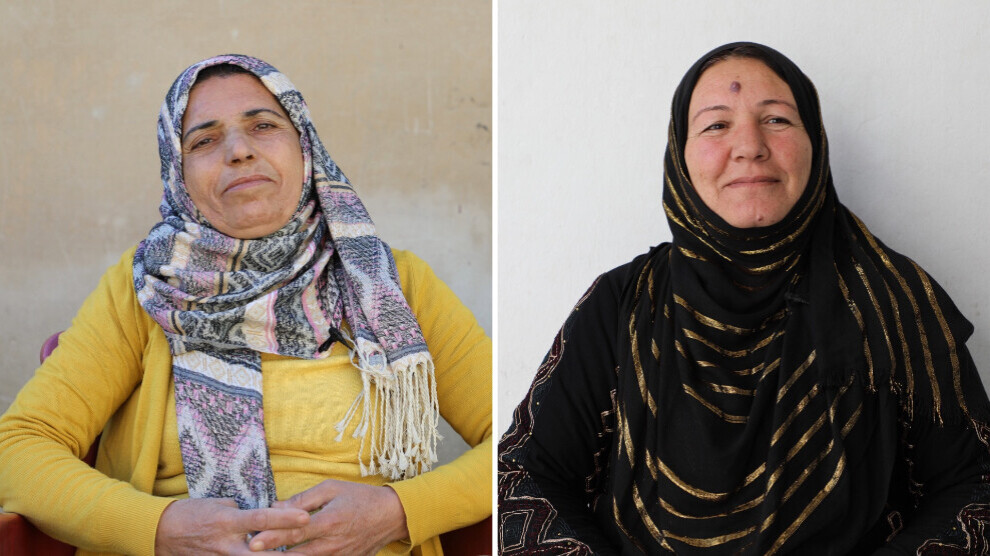Kurdish women in Rojava: We were freed thanks to the Revolution
Zubeyde Îsmaîl comes from the self-governing city of Hesekê in Rojava. "For us, - she said - 8 March is a symbolic expression of renewal, liberation and the re-creation of woman."
Zubeyde Îsmaîl comes from the self-governing city of Hesekê in Rojava. "For us, - she said - 8 March is a symbolic expression of renewal, liberation and the re-creation of woman."

The Rojava Revolution has become known worldwide as the Women's Revolution. Fighting patriarchy is the central issue in this revolution and so the revolution began a profound social transformation process, led by the women's movement. On the occasion of the upcoming International Women's Day, 8 March, members of the women's movement, Cîhan Xalîd, and the mother of a martyr, Zubeyde Ismail, spoke to ANF about the changes brought about by the Rojava Revolution.
Cîhan Xalîd underlined the importance of the apoist philosophy for the development of the Kurdish women's movement: "We got to know 8 March thanks to the philosophy of Rêber Apo [Abdullah Öcalan] and his statement that society cannot be liberated without the liberation of women. 8 March means resistance, struggle and self-knowledge for women. Women are murdered, oppressed, their rights are stolen. Women are still exposed to violence. Therefore, we must unite and fight based on the apoist philosophy."
“A new milestone in women’s lives”
Noting that the Rojava Revolution was an important milestone in the development of a free women's life, Xalîd continued: "With the revolution, many things changed in women's lives. Before, if you were a woman, your own opinion and point of view didn't count. If you rebelled as a woman, especially if you were arrested, it was a great shame and considered a crime. Today we have dozens of pioneers to thank for the freedom movement. Heval Sakine Cansız created herself and with her hundreds of other militant women in resistance against the Turkish state. Thousands of women, followers of Sakine, gave their lives on this path. The goal of everyone was the liberation of women and thus the liberation of society."
"We shouldered the weight of the revolution"
Zubeyde Ismail spoke about her first contact with the freedom movement: "After getting to know the freedom movement, we understood and realized many things. Every person should have their own standards in life and their limits. After getting to know the party, we began to take part in its work. The state was strong back then, we couldn't move much. We took part in the Rojava Revolution from the beginning. We were aware of our responsibility as women and tried to shoulder the burden of the revolution as best we could. We started working in various institutions. I joined the Council of Families of the Martyrs. I worked there for six to seven years. The work involved, but also the spirit behind it, is something very special. Even if we work continuously throughout our lives, we cannot do justice to our martyrs. Day by day, the revolution grew, communities were built, councils and organizations were organized right down to the cantons. A great effort was made, and high prices were paid. Heavy fighting took place and the YPJ and YPG fighters did not give up. The continuation of the revolution to this day was made possible by the efforts of the YPJ and YPG fighters. That’s why we can never repay our debt to them."
"Women have a social mission"
Ismail continued: "With the revolution, women liberated themselves, they took on a mission in society and had their say. Women educated themselves through the revolution and took important steps along the way. Women fought in the mountains and became commanders. The Kurdish women broke the chain of slavery imposed on them. Indeed, the starting point of 8 March was struggle, rebellion and resistance. It is a revolt against the exploitation of women’s bodies, their work and their existence. In this sense, 8 March is for us a symbolic expression of renewal, liberation and the re-creation of a person. On 8 March, nature and women unite with all their colors. 8 March is the first herald of struggle, resistance and freedom."